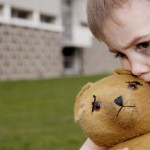The Catch-22 of Child Care
 A recent article in the New York Times details the high cost of child care in the United States. Writer Alissa Quart cites research by sociologist Joya Misra, who argues that women with children are not approaching pay equity with men largely because working may not make economic sense given the high cost of child care. Yet if women drop out of the job market when their children are young, re-entering the job market may entail reduced pay and job responsibilities. A classic Catch-22. There has been much discussion in the past about how difficult it is for poor and working class women to obtain reliable, affordable child care, but this new article focuses on the fact that middle and even upper middle class women are also being priced out of the market for safe, high-quality child care. The author interviews several women in good jobs who struggle to pay for decent child care while still retaining enough income to pay for rent and other necessities. While it may be difficult to feel sorry for the plight of working mothers who are earning $40,000 per year or more, the take-away question from the article is this: if such educated and relatively privileged women cannot easily afford decent child care, what are people of average means supposed to do? The author concludes that the United States needs the same kind of high quality, government-subsidized day care that many other developed countries offer.
A recent article in the New York Times details the high cost of child care in the United States. Writer Alissa Quart cites research by sociologist Joya Misra, who argues that women with children are not approaching pay equity with men largely because working may not make economic sense given the high cost of child care. Yet if women drop out of the job market when their children are young, re-entering the job market may entail reduced pay and job responsibilities. A classic Catch-22. There has been much discussion in the past about how difficult it is for poor and working class women to obtain reliable, affordable child care, but this new article focuses on the fact that middle and even upper middle class women are also being priced out of the market for safe, high-quality child care. The author interviews several women in good jobs who struggle to pay for decent child care while still retaining enough income to pay for rent and other necessities. While it may be difficult to feel sorry for the plight of working mothers who are earning $40,000 per year or more, the take-away question from the article is this: if such educated and relatively privileged women cannot easily afford decent child care, what are people of average means supposed to do? The author concludes that the United States needs the same kind of high quality, government-subsidized day care that many other developed countries offer.

